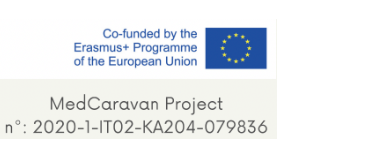
In order to understand the multiple dimensions of theory and practice of agroecology, we need to understand some fundamental concepts and terms which are used in the agroecological thought. The three articles in this series summarize the terminology that is the part of agro ecological glossary created within the project “Medcaravan:Learning and Sharing Agroeocology”. For those who want to explore further on these topics, you can check the curriculum which is part of the project.
Agroecology gives a lot of attention to the economic dimension of agriculture. Historically, and up to the present days, small scale farmers have been and still are, an economically marginalized and vulnerable group. This is even more present in the last 40 years from the introduction of the neoliberal capitalism and the free market principles as an main economic ideology. Essentially, free market policies have subdued the value of the food to the market speculation, leading to the devalorization of the real price of the food production. Coupled with the vicious circle of growing prices of agricultural inputs and government subsidies favorising massive industrial agricultural production (Go Big or Go Out mantra), the result was the constant impoverishment of the small scale farmers, and in many cases too, their bankruptcy, sometimes leading to the suicides like the scenario in India.
Agroecology deals seriously with the economic dimension issues of food production, in other words, agroecology deals with the issues of how to improve the economic existence of farmers, either by improving the farm production techniques and reducing the cost by reducing the external inputs, or by creating a different market conditions under which the food is sold to the consumers. In order to tackle these issues, agroecology tries to establish economic principles based on the solidarity economy principles which are supporting the creation of the direct economic exchange based producers and consumers based on the real value of the food production, instead of the market based concept values. The concrete example of implementing the solidarity based economy in agroecological reality is the Community Supported Agriculture (CSA) schemes.Agroecology emphasizes the development of the local economy based on the territorial approaches. Development of short and local food supply chains are part of the local economy development for the mutual benefit of both producers and consumers that can be designed for the specific territory/region.
In a nutshell, the solidarity economy and its concepts and principles are foundations for growing and building the economic sustainability of the agroecological movement. As long as the prices of the food are artificially manipulated and depreciated, and the economic status of the small scale farmers doesn’t achieve economic viability and dignity of the work, we can’t talk about the achievement of the sustainable agriculture nor sustainable development agenda. Solidarity economy principles must become main economic principles if we want to provide decent income to the small scale farmers and therefore, securing their livelihoods and creating more prosperity for the rural economies.



